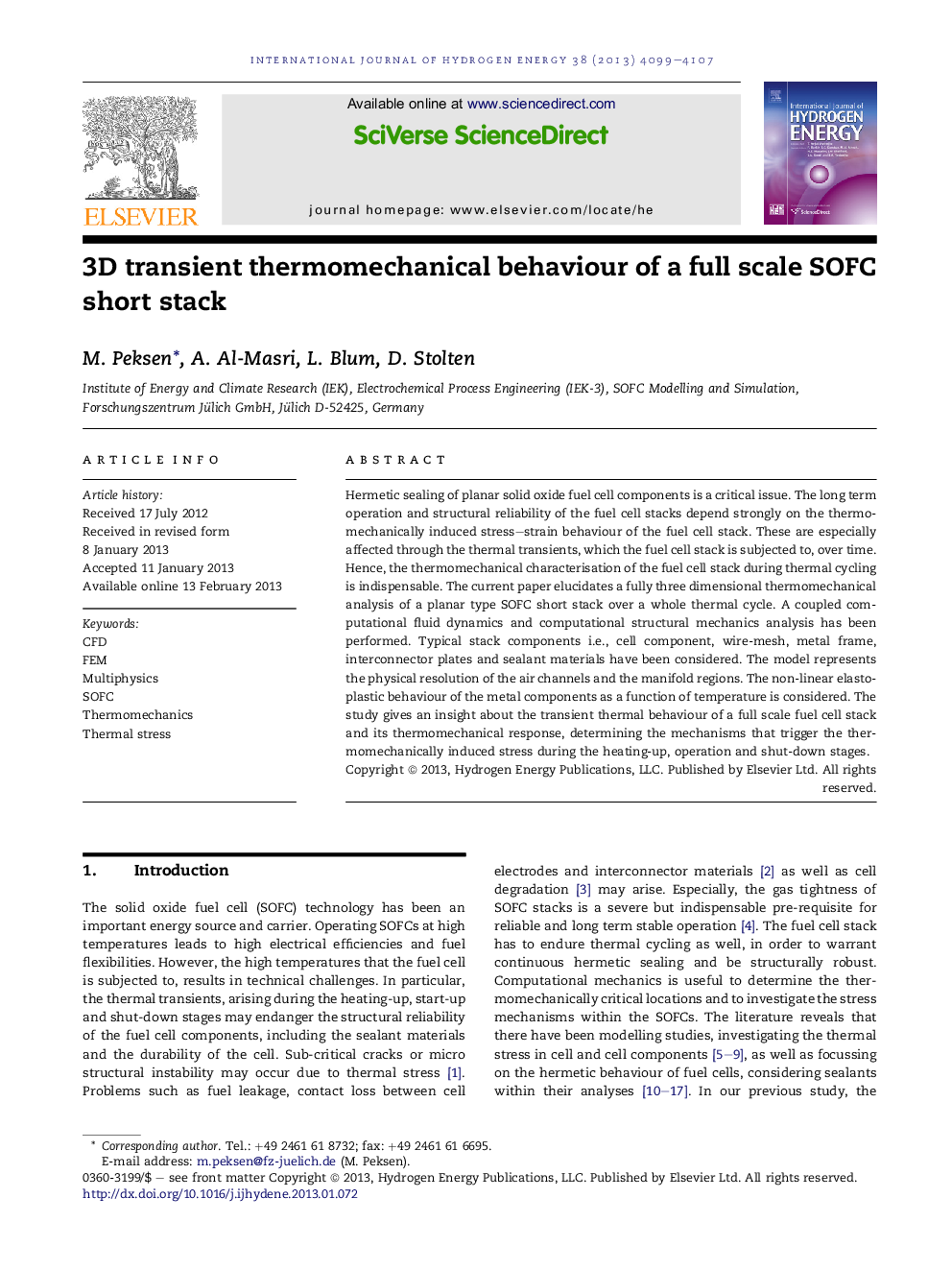| Article ID | Journal | Published Year | Pages | File Type |
|---|---|---|---|---|
| 1281874 | International Journal of Hydrogen Energy | 2013 | 9 Pages |
Hermetic sealing of planar solid oxide fuel cell components is a critical issue. The long term operation and structural reliability of the fuel cell stacks depend strongly on the thermomechanically induced stress–strain behaviour of the fuel cell stack. These are especially affected through the thermal transients, which the fuel cell stack is subjected to, over time. Hence, the thermomechanical characterisation of the fuel cell stack during thermal cycling is indispensable. The current paper elucidates a fully three dimensional thermomechanical analysis of a planar type SOFC short stack over a whole thermal cycle. A coupled computational fluid dynamics and computational structural mechanics analysis has been performed. Typical stack components i.e., cell component, wire-mesh, metal frame, interconnector plates and sealant materials have been considered. The model represents the physical resolution of the air channels and the manifold regions. The non-linear elasto-plastic behaviour of the metal components as a function of temperature is considered. The study gives an insight about the transient thermal behaviour of a full scale fuel cell stack and its thermomechanical response, determining the mechanisms that trigger the thermomechanically induced stress during the heating-up, operation and shut-down stages.
► Transient coupled 3D thermofluid/thermomechanical full scale SOFC stack is analysed. ► Stress and strain distributions are simulated in 3D over time via FEM. ► Transient temperature distributions are simulated in 3D over time via CFD. ► Elastoplastic interconnector plates and brittle sealants are investigated. ► Stress mechanisms during heating-up, operation and shut-down are determined.
